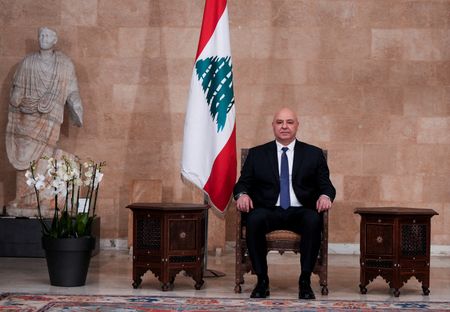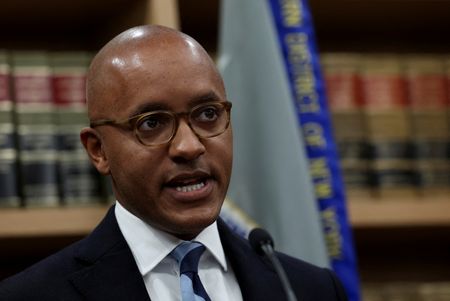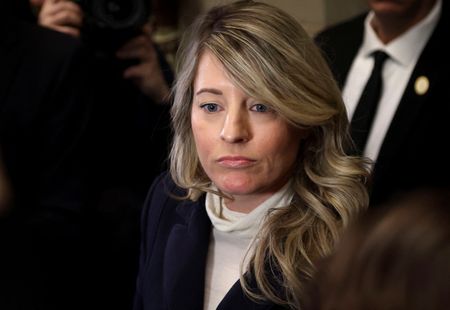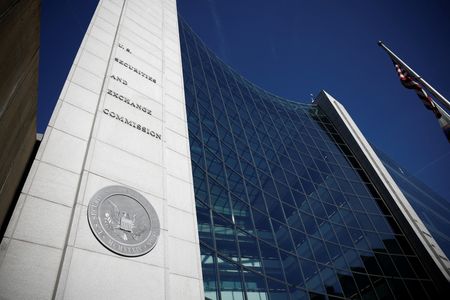By Sonali Paul and Sudipto Ganguly
MELBOURNE (Reuters) – Clinging to his dream of winning a record 21st major title at the Australian Open, tennis world number one Novak Djokovic returned to an all too familiar immigration detention hotel on Saturday, waiting for a court to decide if he should be deported.
Djokovic arrived at Melbourne’s Park Hotel around 3:30 pm (0430 GMT), according to a Reuters witness. It is the same immigration detention hotel where the unvaccinated Serbian superstar was held last week over visa problems related to a COVID-19 medical exemption.
About a dozen refugee activists chanted “stop the torture … let them out” as Djokovic and Border Force guards drove into the underground garage of the hotel, which is also being used to hold 33 asylum seekers and travellers in COVID-19 quarantine.
A man cycling past the hotel shouted: “Go home, Novak!”
A Border Force spokesperson confirmed that Djokovic has been detained.
The saga that has dominated headlines worldwide for the past week could climax on Sunday, when a Federal Court convenes to hear the 34-year-old’s appeal against the Australian government’s second attempt to boot him out.
The tournament, which Djokovic has won nine times previously, starts on Monday.
The build-up has been virtually eclipsed by the controversy over Djokovic’s visa, his treatment by immigration officials, and the government’s handling of the case.
Detained on arrival Djokovic spent his first four nights in hotel detention before a judge freed him on Monday after finding a decision to cancel his visa on arrival had been unreasonable.
Immigration Minister Alex Hawke cancelled Djokovic’s visa again on Friday night, prompting another appeal by the star player’s lawyers.
Court documents released after an initial hearing in the Federal Court on Saturday showed the minister had justified his decision on the grounds that Djokovic’s presence could whip up more anti-vaccination sentiment in Australia at a time that the country is in the midst of its worst outbreak of the virus.
“Although I … accept that Mr Djokovic poses a negligible individual risk of transmitting COVID-19 to other persons, I nonetheless consider that his presence may be a risk to the health of the Australian community,” Hawke said in a letter to Djokovic and his legal team.
This explanation in Djokovic’s affidavit was more detailed than the brief statement Hawke released on Friday, saying his decision was based on “health and good order grounds”.
Justice David O’Callaghan set a hearing on Djokovic’s appeal for 9:30 a.m. Sunday (2230 GMT Saturday). Three judges will hear the appeal and their decision will be final, the court said.
Djokovic’s lawyers said they would argue deportation would only further fan anti-vaccine sentiment and would be as much a threat to disorder and public health as letting him stay.
LOCKER ROOM RUMBLINGS
Djokovic’s leading rivals have become increasingly impatient with the uncertainty hanging over the draw and the cloud hanging over their sport.
“Honestly I’m little bit tired of the situation because I just believe that it’s important to talk about our sport, about tennis,” Spaniard Rafa Nadal, who is tied on 20 major titles with Djokovic, told reporters at Melbourne Park, where the event will be played.
German Alexander Zverev, the world number three, said Djokovic had been treated unfairly and that the Serb might have been used as a political pawn by Australian authorities, something Canberra has denied.
“This is obviously not a nice thing for everyone, for him especially. But don’t question his legacy because of this,” Zverev said.
A Croatian tennis coach, who was among a handful of visitors granted a medical exemption for the Australian Open, told The Australian newspaper he had to leave the country because Djokovic had become a political target.
“Nobody can get politically stronger using my name, but Djokovic is such a high-profile player – that is why all of this is happening,” Filip Serdarusic, the brother and coach of world number 246 Nino Serdarusic, was quoted as saying from Zagreb.
Djokovic’s medical exemption from vaccine requirements to play the Open prompted widespread anger in Australia, which has undergone some the world’s toughest COVID-19 lockdowns and where more than 90% of adults are vaccinated, but hospitalisation rates continue to hit record highs.
With global scientists and policymakers focussed on vaccinating as many people as possible to end the pandemic, the refusal of Djokovic to get the jab has fuelled the anti-vaccination movement, especially in his native Serbia and surrounding countries.
The controversy over the tennis player has become a political touchstone for Prime Minister Scott Morrison as he prepares for an election due by May.
His government has won support at home for its tough stance on border security during the pandemic, but it has faced criticism for its handling of Djokovic’s visa application.
Djokovic, who is scheduled to play fellow Serb Miomir Kecmanovi in the first round of the Open, is hunting a record-breaking 21st Grand Slam title. He could still withdraw and leave Australia of his own accord rather than suffer the humiliation of being deported.
“Australian Open is much more important than any player,” said Nadal, whom Djokovic considers his greatest rival.
“If he’s playing finally, OK. If he’s not playing, Australian Open will be great … with or without him.”
(Reporting by Sonali Paul, Sudipto Ganguly, Ian Ransom and Kirsty Needham; additional reporting by Renju Jose in Sydney; Editing by Leela de Kretser, Daniel Wallis and William Mallard)











